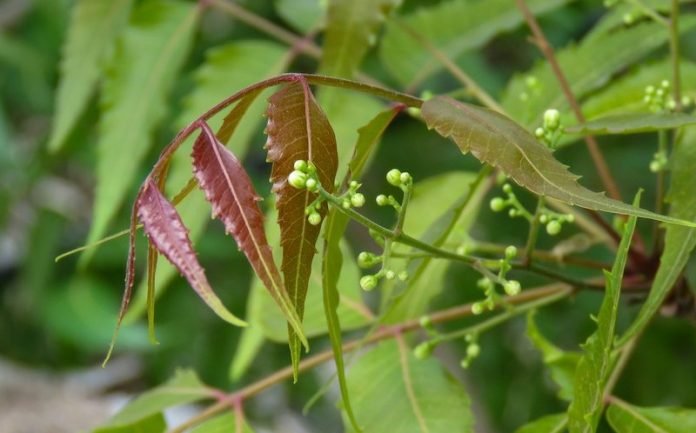
In a new study from the University of Colorado and elsewhere, researchers found an extract from the bark of the neem tree may help treat and reduce the spread of coronavirus.
They found that components of neem bark may target a wide range of viral proteins, suggesting its potential as an antiviral agent against emerging variants of coronaviruses (including SARS-CoV-2).
The neem tree, indigenous to India, has been used for thousands of years for its anti-parasitic, anti-bacterial and antiviral properties.
The bark extract has helped treat malaria, stomach and intestinal ulcers, skin diseases and many other diseases.
The goal of this research is to develop a neem-based medication that can reduce the risk of serious illness when someone is infected with coronaviruses.
In the study, the team examined the impact of the bark extract against coronaviruses in their laboratories.
In India, researchers tested it in animal models and showed that it had antiviral properties against coronavirus.
Using computer modeling, the researchers predicted that neem bark extract will bind to the SARS-CoV-2 spike protein at various locations, preventing virus entry to host cells.
The team also tested the neem bark extract in SARS-CoV-2 human lung cells. It proved as effective as a preventive drug for infection and also decreased virus replication and spread after infection.
The next step in our research is to identify the specific components in neem bark extract that are antiviral.
Because these components bind to various regions of SARS-CoV-2, the team believe that it will be effective on emerging variants with spike mutations.
Researchers will then determine the formulation of dosage for an antiviral drug to treat coronavirus infections.
If you care about COVID, please read studies about a new drug that could prevent COVID-19, and new ways to predict who will get severe COVID-19 and die
For more information about Covid, please see recent studies that people with COVID-19 infections may age much faster, and results showing that breakthrough COVID infections very mild for vaccinated people.
The study is published in the journal Virology and was conducted by Maria Nagel et al.
Copyright © 2022 Knowridge Science Report. All rights reserved.



